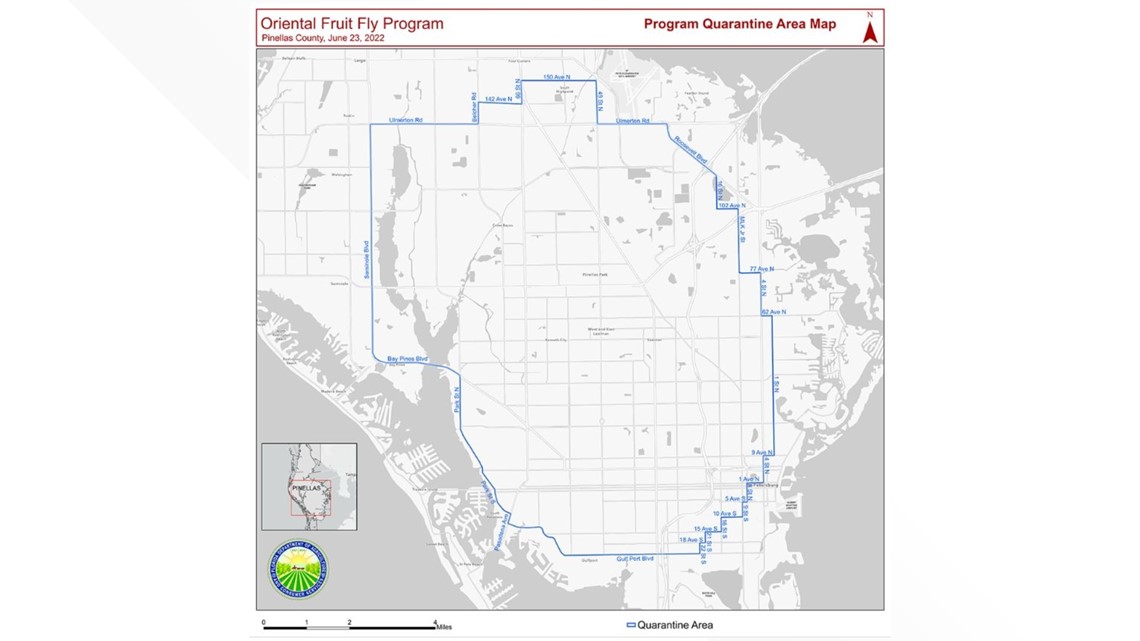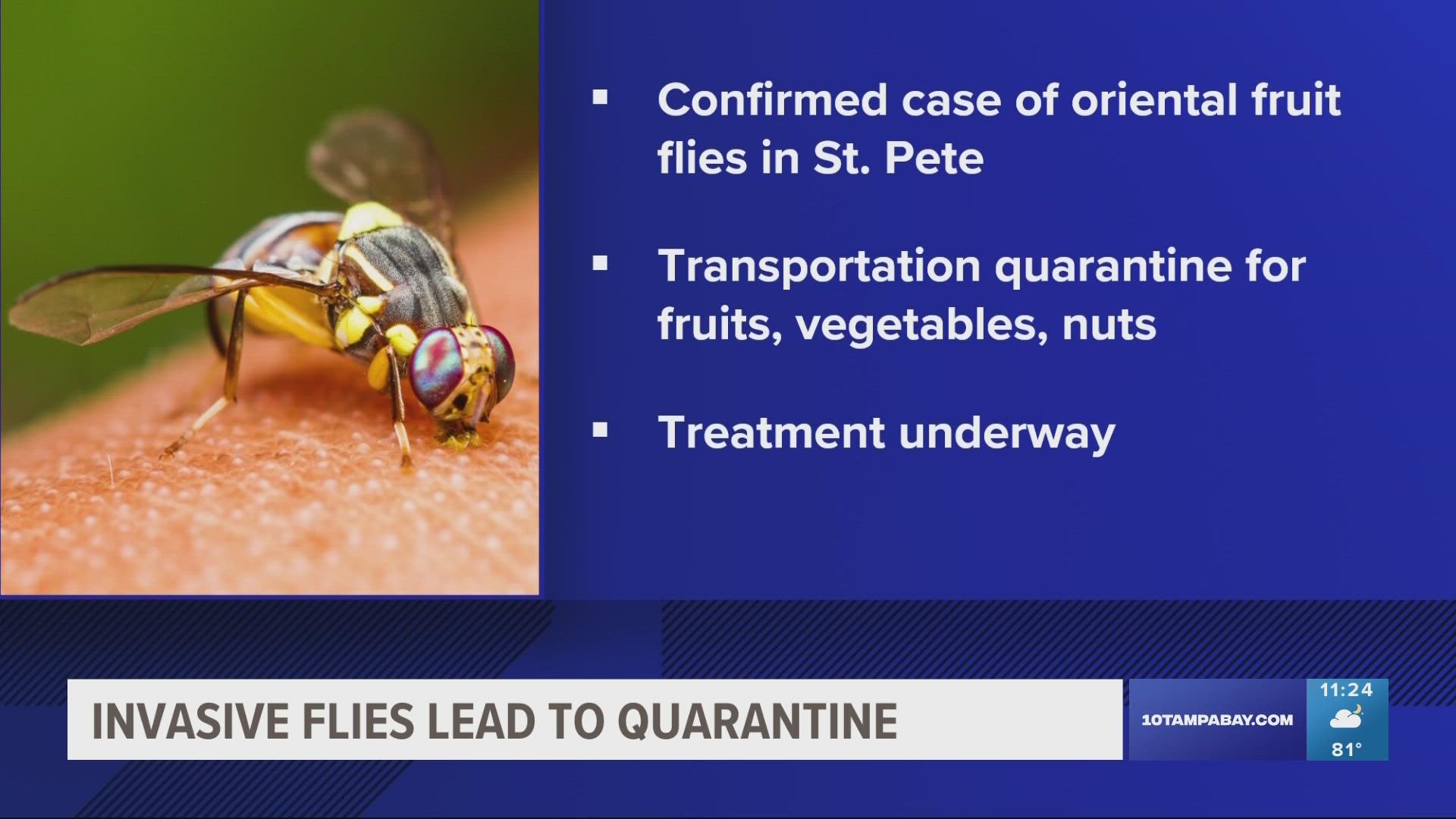ST. PETERSBURG, Fla. — A quarantine was established Friday in part of the St. Petersburg area, halting the transportation of fruits, vegetables and nuts without approval from the Florida Department of Agriculture and Consumer Services (FDACS).
Commissioner Nikki Fried's Office revealed it had confirmed the presence of Oriental fruit flies – which can threaten crops and seriously damage the economy.
Some flies were found during routine trapping done as part of the state's exotic pest surveillance work. But, as trapping efforts were expanded, more flies were discovered – raising concerns.
Fried's office said Oriental fruit flies lay their eggs in fruits and veggies. When the eggs hatch, maggots make the food inedible.
"This species is considered one of the most serious of the world’s fruit fly pests due to its potential economic harm," FDACS wrote in a statement. "It attacks more than 436 different fruits, vegetables and nuts, including fig, loquat, mango, orange, peach, plum, sapote, soursop, Surinam cherry, tangerine, tropical almond and guava."
The state said treatment efforts were already underway Friday in a 1.5-square-mile area around fly detection zones across areas in St. Petersburg.


"The treatments consist of male annihilation technique (MAT), foliar spot treatment, soil drench treatment and fruit removal," FDACS wrote in a news release. "MAT treatment uses a bait and insecticide mixture, killing the flies when they feed on the bait. It may be applied weekly to the upper portion of utility poles, trees and other inanimate objects out of the normal reach of people and pets."
Dr. Trevor Smith, director of the FDACS Division of Plant Industry, said the state is working with federal partners to eradicate the flies. And, the government has seen success with those efforts in the past. In fact, the state said Oriental fruit flies have been trapped repeatedly in Florida since the 60s and have been "successfully eradicated" each time.
“This detection highlights the importance of our world class exotic pest surveillance system,” Dr. Smith wrote in a statement.
More information can be found here or by dialing the Division of Plant Industry Helpline at 1-888-397-1517.

